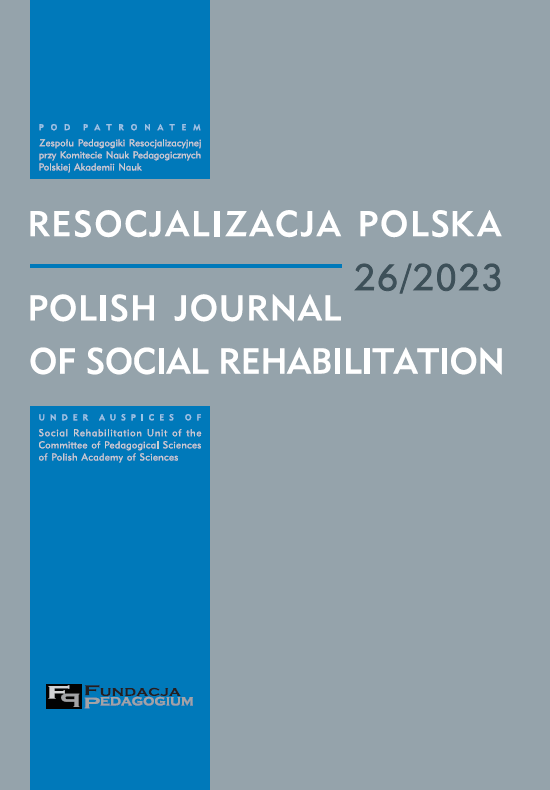Stres i wypalenie nauką zdalną oraz używanie substancji psychoaktywnych jako predyktory dobrostanu psychicznego uczniów podczas pandemii Covid-19
Stress and burnout with remote learning and psychoactive substance use as predictors of students’ psychological well-being during the Covid-19 pandemic
Author(s): Agnieszka Muchacka-Cymerman, Katarzyna TomaszekSubject(s): Higher Education , Behaviorism, Substance abuse and addiction, Health and medicine and law, Sociology of Education, Distance learning / e-learning
Published by: Fundacja Pedagogium
Keywords: school stress; remote learning burnout; psychoactive substance use; psychological well-being;
Summary/Abstract: Engaging in health risk behaviors, along with educational problems, are among the main factors negatively affecting adolescents’ health and mental well-being. However, stress and burnout from remote learning and substance abuse during the Covid-19 pandemic as predictors of students’ psychological well-being have not yet been studied more extensively in Poland and around the world. With this in mind, the purpose of the study conducted was to see if there was a relationship between stress, school burnout and psychoactive substance use and students’ psychological well-being. Method: The study was conducted via the Internet using the following methods: Remote Learning Burnout Scale, Risk Behavior Questionnaire, Caroll Ryff Brief Mental Well-Being Scale, 1 Question Measurement of Educational Stress. The group of study subjects consisted of 186 adolescents (60% girls) with a mean age of M = 15.93 years (SD = 1.70 years). Results: The data obtained indicate that the most common psychoactive substance used by adolescents was alcohol (38% of students) and nicotine (32% of students). Statistically significant negative associations were confirmed between psychological well-being and stress and burnout with remote learning, as well as more frequent use of tobacco and hanging out with addicts. Remote learning burnout syndrome correlated positively with smoking and marijuana use, as well as alcohol consumption and binge drinking. In the summary regression model, only remote learning burnout and cigarette use proved to be significant predictors, explaining 18% of the variance in the students’ psychological well-being score. Conclusions: The data obtained unequivocally confirmed that effective mental health promotion among adolescents must take into account two key areas of prevention, i.e. strategies for coping with educational cyber-stress and remote learning burnout, as well as psycho-prevention focused on minimizing the risk of young people turning to psychoactive substances.
Journal: Resocjalizacja Polska
- Issue Year: 26/2023
- Issue No: 1
- Page Range: 217-237
- Page Count: 21
- Language: Polish

